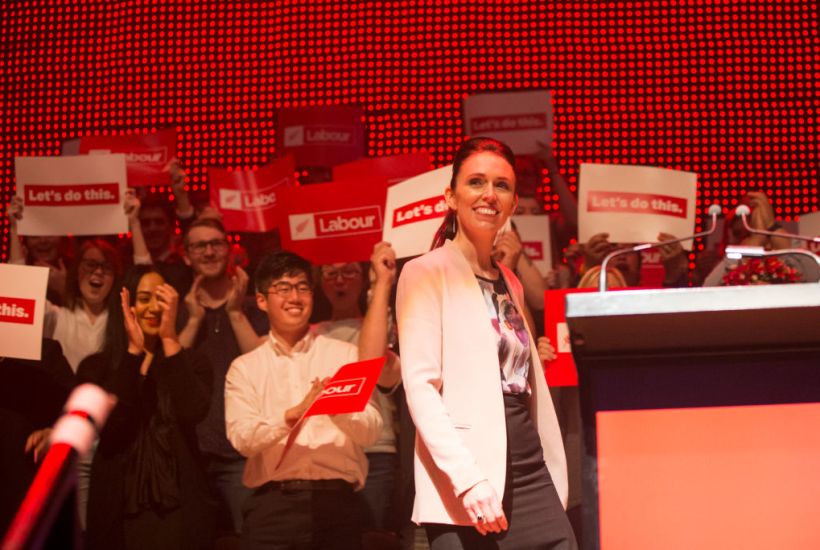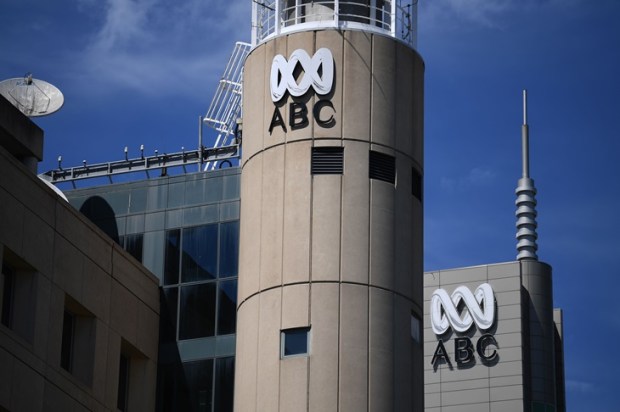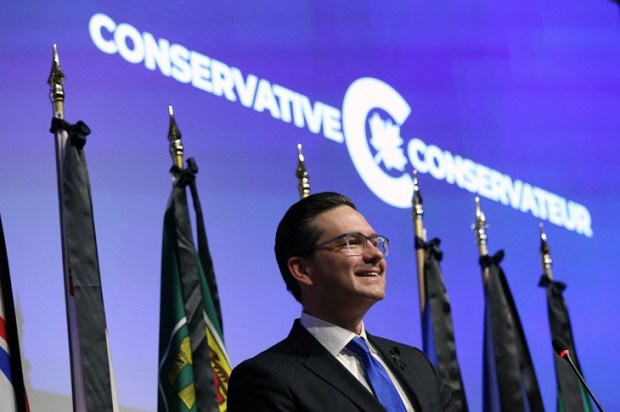It may not mean a lot to people on this side of the Tasman (besides Barnaby Joyce and Scott Ludlum), but across the ditch there’s a general election with ramifications for Australian politics.
New Zealand votes on 23 September. The National Party-led conservative coalition of Prime Minister Bill English is being hotly challenged by a resurgent Labour party led by a telegenic and newly-selected 37-year-old leader, Jacinda Ardern.
A month ago, English and National led Labour in opinion polls by as much as 20 per cent, and English was far and away preferred prime minister to then Labour leader, Andrew Little, who was outpolled even by his deputy Ardern.
Then, on 1 August, Little suddenly resigned in favour of Ardern, reckoning a change of leadership might keep Labour in the game. In sacrificing himself, his judgment was vindicated.
Labour’s fortunes transformed overnight. The personable and charismatic Ardern enchanted the media and public interest so much, it’s been labelled ‘Ardernmania’. As the campaign started, a combination of adoring coverage, lucky breaks, and an implosion of the Green party’s leadership allowed Labour to hoover up the Left-leaning vote. Consequently, a fortnight from election day, National and Labour are neck and neck, and the nearly unknown Ardern is leading the seasoned pro English as preferred PM.
While Ardernmania’s gripped the New Zealand commentariat, English has been campaigning for a fourth three-year term based on a record of economic achievement that other Anglosphere governments can only dream of. A government in budget surplus. An unemployment rate of less than five per cent. GDP growth of four per cent. Turning a net emigrant into a net immigrant country. Successfully implemented reforms in the labour market and social welfare. A reputation for negotiating trade agreements so good that Theresa May has looked to English for advice, and seconded his negotiators. And all achieved with the huge fiscal burden of funding the massive reconstruction of the southern city of Christchurch after catastrophic earthquakes in 2010-11.
As in Australia and Britain, housing affordability is a big issue. An overheated housing market, especially in the largest city of Auckland, is putting home ownership beyond many New Zealanders and causes mortgage stress for many thousands more. Yet in the wider economic picture these are blips, consequences of a prosperous economy under the eye of first John Key’s Finance minister and now PM, English.
Labour, by contrast, emulates the ‘you want it so I’ll promise it’ approach that almost got Jeremy Corbyn into Number Ten and Bill Shorten into The Lodge. Free university places. More government intervention in the economy and society. Paid parental leave. More focus on clean, green energy. More spending on public infrastructure. Funded increases in the minimum wage. Much more spending, full stop.
National too is making some big-ticket promises, particularly around transport and health infrastructure, but essentially is promising more of the same and its proven reliability in governing. This week, it successfully started a heated debate about whether Labour can pay for its promises: in dismissing a sweeping National claim about a $12 billion “fiscal hole” in Labour’s costings, leading independent economists expressed concern that while Labour could fund what they’re promising, it would be hard for a Labour government to meet its wider budget obligations as well.
In other words, Labour must tax more to spend more.
The biggest threat to National, however, is not Ardern or Labour, but time. Since 1975, with a two-term Labour exception in the 1980s, National and Labour have taken turns at government on a three-terms at a time basis. The 1990s switch from first-past-the-post to a German-style Mixed Member Proportional (MMP) system has, if anything, entrenched regular role-swapping, and restless centrist voters switching sides make a fourth term a political Holy Grail.
Unsurprisingly, Labour is running hard on ‘it’s time’ and Ardern’s fresh face, and latest opinion polls give her the edge. English, the middle-aged farmer and family man, in politics for over 20 years, is solid but unspectacular, while the media gives his opponent a lot of ‘stardust’, as he described it in his latest debate with Ardern. However, English is campaigning strongly, National’s vote is holding with a very good story to tell, and English and Key are highly respected not just for their achievements, but their style of government. What’s more, his sudden shift to underdog status seems to be suiting English.
The one thing English isn’t doing but should, however, is stressing the government’s solid economic performance and reliability as insurance against an uncertain future. A healthy budget surplus, low public debt and well-managed spending are future-proofing the country from external economic and political shocks. Voters tempted by Ardern and her big-spending promises need firm, but not panicked, reminding their promises must be affordable, and their small-country government needs money in the bank to be ready for any contingency.
There is one further imponderable. Under MMP, coalitions underpin parliamentary majorities, and there is only one party that both sides can court to secure government. That is the New Zealand First party led by the populist, opportunist but very wily Winston Peters. Peters has no love for English, who helped expel him from the Nationals 20 years ago, but is coy about supporting Labour. Peters being Peters, he will wait to see the results on 23 September and support whoever will best look after Peters, which he equates with best looking after New Zealand’s interests.
If the New Zealand campaign continues to focus on economics and fiscal responsibility, English and National should just prevail as the largest party, although under MMP an absolute majority is all but impossible and the Peters factor almost unavoidable. But Labour’s Ardern-centred atmospherics, homing in on housing affordability and other National weak points, can achieve a victory unimaginable even a month ago.
The message for Malcolm Turnbull, the Liberal Party and their wider Anglosphere fraternity about what’s happening in New Zealand, following Stephen Harper’s Canadian experience in 2015, is clear. No matter how good it’s been, a competent, well-led, centre-right government easily can fall to a feel-good yet old-fashioned big spending campaign from the Left where style trumps substance.
In Britain and Australia, let alone the United States, conservative governments are riven with deep conflicts of policy, politics and philosophy, let alone perceived competence. If a stable unified centre-right government like Bill English’s can be threatened from nowhere, the outlook for its unstable, disunited and directionless conservative Anglosphere equivalents is bleak indeed.
A version of this article was originally published on the British website, ConservativeHome.
Got something to add? Join the discussion and comment below.
Got something to add? Join the discussion and comment below.
Get 10 issues for just $10
Subscribe to The Spectator Australia today for the next 10 magazine issues, plus full online access, for just $10.


























Comments
Don't miss out
Join the conversation with other Spectator Australia readers. Subscribe to leave a comment.
SUBSCRIBEAlready a subscriber? Log in